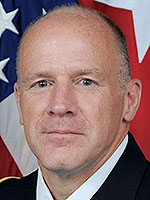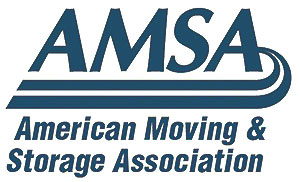Industry Objects to Plan to Privatize Military Moves

A plan to turn over responsibility for household-goods moves for military personnel to a single third-party transportation manager is running into opposition from industry leaders who say the idea is flawed and won’t rectify the problems U.S. Transportation Command said it wants to address.
After a recent meeting with moving company executives at Scott Air Force Base in Illinois, Commander Gen. Stephen Lyons argued that changes to the Defense Personal Property Program were needed to improve the moving experience for military service members and to secure additional capacity during the upcoming peak moving season.
A surge in personnel relocations from May to August historically has strained industry capacity and efforts by the Department of Defense to issue relocation orders earlier to avoid scheduling problems hasn’t worked.
“We need to recognize the market we’re in,” Lyons said March 19. “Just as package carriers scale capacity to manage holiday demand, we need to build a program that can scale quality capacity to move our families. Our current program simply can’t get there.”

Lyons
DOD currently does business with more than 950 transportation service providers on a transactional shipment-by-shipment basis, according to Lyons. Instead, U.S. Transcom has put forth a proposal to consolidate military moves under a single commercial move manager and to enter into a multiyear contract that would provide an opportunity to streamline business processes and attract capacity from additional carriers that do not currently participate in the market.
Military moves make up about 20% of the domestic household goods moving business and generate annual revenue of $2.5 billion for carriers, according to a spokesperson for the American Moving & Storage Association.
In a statement issued after the meeting with Lyons at Scott Air Force Base, officials from the moving and storage association took issue with the concept of outsourcing military moves and chided U.S. Transcom for not taking heed of industry objections.
“The USTC continues to push forward this proposal without fact-based assessments of how it will affect service members and the businesses that serve them,” said Paul Milotte, vice president of government affairs for Alexandria, Va.-based American Moving & Storage Association. “Telling over 900 transportation service providers that the only way to fix the program is to privatize management of it to a commercial provider, then hosting listening sessions, and then proceeding as planned anyway, despite expressed opposition, does not constitute partnering with our industry.”

Michael
Scott Michael, president and CEO of the association, said he believes current program rules can be improved and he is skeptical that simply hiring a third-party management firm will do anything to improve the moving experience for military personnel.
“We fear that handing this program over without first seriously addressing the perennial problems with it simply risks shifting blame from the Department of Defense to a contractor,” Michael stated. “In that scenario, the service member loses.”
Under current protocols, military service members are given the opportunity to rate their mover and U.S. Transcom can use those scores to determine which mover gets the business.
Since 2010, about 10% of service members report unsatisfactory moving experiences each year, with the number jumping to 20% during the peak season, officials at U.S. Transcom said.
The average customer satisfaction score on domestic shipments has steadily improved from 77.03 in 2010 to 87.58 in 2018, the association said.
It responded to U.S. Transcom’s claim that awarding contracts on a transactional basis is inefficient, by saying that the problem isn’t how loads are booked but the inability of DOD to accurately forecast load volumes.
“Demand planning is not feasible when military service members could be assigned to move at any time by their personnel offices,” American Moving & Storage Association officials said.

Industry representatives also took issue with the notion that having a single move manager would bring on more capacity.
“The current [plan] does not provide a clear picture of what responsibility the DOD will retain as contract overseer,” said association officials. “Long-term relationships with industry partners do incentivize investments, but the only long-term relationship here is with the move manager. There is no relationship between DOD and the movers, so there is no incentive for the movers to invest in capacity.”
Bill Wanamaker, executive director of the Government Freight Conference of American Trucking Associations, said he is concerned that DOD will repeat mistakes from another program, the Defense Transportation Coordination Initiative, that turned over responsibility for freight shipments to a third-party logistics company.
“Nothing went right with DTCI,” Wanamaker said. “More carriers now are inclined to avoid government freight because they have made themselves so difficult, unpredictable and costly to serve.”
A timetable for implementing the plan for military moves is not clear. U.S. Transcom officials said they are still assessing potential costs and that a formal proposal could be withdrawn if no viable candidates for commercial move manager are identified.




